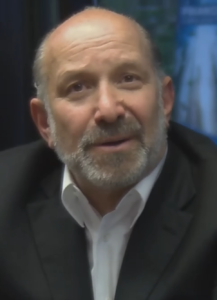A prolonged military conflict in the Middle East could potentially upend key commodity markets due to Iran’s control of the Strait of Hormuz, one of the world’s most important trade…
Trump Commerce Pick Increases Concerns of China Trade War
AgWeb’s Jim Wiesemeyer reported Wednesday that “President-elect Donald Trump’s selection of Howard Lutnick, the CEO of Cantor Fitzgerald, as Commerce Secretary highlights plans to leverage tariffs in trade negotiations, with Lutnick emphasizing their use as both a revenue source and bargaining tool.”
“Lutnick has called the tariffs a negotiating tool that could be used to convince other countries to bring down their own levies or to force companies to move production to the U.S. He has said Trump would avoid taxes on products U.S. companies don’t make,” Wiesemeyer reported. “Commerce oversees the International Trade Administration, an agency in charge of enforcing trade laws and investigating unfair trade practices.”

Wiesemeyer reported that “Lutnick’s vision aligns with Trump’s historical approach to trade, which emphasizes protectionism to bolster U.S. manufacturing and reduce reliance on imports. During a recent rally, Lutnick remarked that America’s economic prosperity in the early 1900s was due to tariffs rather than income taxes, indicating his belief in a return to such policies. Lutnick has said the incoming administration would use tariffs as a bargaining chip with other countries. ‘We’ll make a bunch of money on the tariffs, but mostly everybody else is going to negotiate with us,’ he said on CNBC.”
“Lutnick’s appointment signals an aggressive stance on trade that could lead to increased tensions with trading partners. The Commerce Department plays a crucial role in enforcing tariffs and negotiating trade agreements, which may become contentious under Lutnick’s leadership,” Wiesemeyer reported. “Economists have expressed concerns that such high tariffs could lead to retaliatory measures from other nations, potentially resulting in higher prices for consumers and disruptions in global supply chains.”
“Kevin Chen, associate research fellow at the S. Rajaratnam School of International Studies, told the South China Morning Post, ‘There is little question that he will push forward with tariffs. That being said, he has also suggested that the tariffs could be used to negotiate trade deals with other countries,’ he said,” Wiesemeyer reported. “Chen suggested that the choice of Lutnick — alongside other China hawks joining Trump’s team including Marco Rubio as secretary of state and Mike Waltz as national security adviser — could be ‘very dangerous for U.S./China relations’ given the Commerce Department’s oversight of export controls.”
“‘Lutnick is likely to focus tariffs on China’s manufacturing sector, especially for goods that the U.S. already produces. The likelihood of this leading to another U.S./China trade war is too high to ignore,’ he said,” Wiesemeyer reported.
U.S. Businesses Warn Tariffs Could Lead to Higher Prices
Reuters’ Niket Nishant, Shivansh Tiwary and Manya Saini reported Tuesday that “corporate executives were taking a wait-and-see approach to President-elect Donald Trump’s vow to impose heavy tariffs on imports when he takes office in January, but many have raised concerns about the effect such levies will have on inflation.”
“Walmart, the nation’s largest retailer, suggested on Tuesday after reporting results that prices could increase if tariffs rise,” Nishant, Tiwary and Saini reported. “‘We’re concerned that significantly increased tariffs could lead to increased costs for our customers at a time when they are still feeling the remnants of inflation,’ a Walmart spokesperson said.”
“Since the beginning of September, executives from nearly 200 companies in the S&P 1500 Composite index discussed tariffs on earnings calls or at investor conferences, nearly doubling the same period in the run-up to the 2020 election, and far more than the 23 mentions in 2023, according to LSEG data,” Nishant, Tiwary and Saini reported. “‘Roughly 40% of our cost of goods sold are sourced outside of the U.S., and that includes both direct imports and national brands through our vendor partners,’ Lowe’s CFO Brandon Sink said on Tuesday. ‘And as we look at the potential impacts (of tariffs), it certainly would add to product costs.'”





